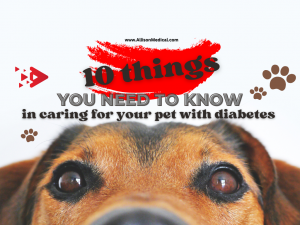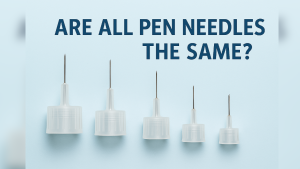Be sure to talk to your veterinary professional before making any treatment changes.
Managing diabetes in pets often involves administering insulin injections, but many pet owners wonder if there are alternatives. While insulin therapy is the most effective and widely recommended treatment, there are some alternatives and complementary strategies that may help manage diabetes in specific cases. It is essential to consult your veterinarian before making any changes to your pet’s treatment plan.
1. Dietary Management
Diet plays a crucial role in controlling blood sugar levels, and in some cases, dietary changes can reduce the reliance on insulin injections.
- Low-Carbohydrate Diets for Cats: Cats with diabetes often benefit from diets high in protein and low in carbohydrates. These diets mimic a cat’s natural prey-based diet and can help stabilize blood sugar levels.
- High-Fiber Diets for Dogs: Dogs with diabetes may do well on diets high in fiber and complex carbohydrates. These slow the absorption of glucose and help prevent spikes in blood sugar levels.
- Consistent Feeding Schedule: Feeding your pet at the same times every day and coordinating meals with insulin administration (if applicable) can improve glucose control.
While dietary management alone is rarely enough to replace insulin therapy, it is an essential part of any diabetes treatment plan.
2. Oral Medications
In some cases, oral medications may be used to help regulate blood sugar levels. However, these medications are generally less effective than insulin and are not suitable for all pets.
- Sulfonylureas (e.g., Glipizide): These medications stimulate the pancreas to produce more insulin. They may be an option for some cats but are rarely effective in dogs.
- SGLT2 Inhibitors: Emerging research suggests that certain oral medications designed for humans may have potential applications for diabetic pets, but they are not yet widely used in veterinary medicine.
Oral medications are usually reserved for cases where insulin injections are not feasible, and their use requires careful monitoring by a veterinarian.
3. Weight Management
Obesity is a significant risk factor for diabetes and can make managing the condition more challenging. Helping your pet achieve and maintain a healthy weight can improve insulin sensitivity and overall glucose control. Strategies include:
- A veterinarian-prescribed weight loss plan
- Regular, moderate exercise tailored to your pet’s abilities
4. Supplements and Alternative Therapies
Some pet owners explore supplements or alternative therapies to support diabetes management. While these should never replace conventional treatments, they may provide additional benefits:
- Chromium and Vanadium: These minerals may help improve glucose metabolism, though evidence in pets is limited.
- Herbal Remedies: Certain herbs, such as fenugreek, are sometimes used, but their efficacy and safety in pets are not well-studied.
Always discuss supplements or alternative therapies with your veterinarian to ensure they are safe and appropriate for your pet.
5. Monitoring and Lifestyle Adjustments
Regular blood sugar monitoring is critical for diabetic pets, regardless of the treatment approach. Tools like continuous glucose monitors can provide valuable insights and help fine-tune management strategies. Additionally:
- Ensure your pet’s routine is as consistent as possible.
- Minimize stress, which can affect blood sugar levels.
Conclusion
While insulin injections remain the cornerstone of diabetes treatment in pets, alternatives such as dietary management, oral medications, weight control, and supplements may play a supportive role in specific cases. However, these approaches are rarely sufficient on their own and require close veterinary supervision. By working closely with your veterinarian, you can create a tailored plan to manage your pet’s diabetes effectively and improve their quality of life.









